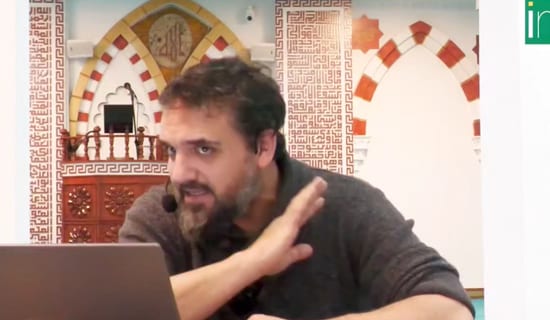Russia This Week is a weekly review by the MEMRI Russian Media Studies Project, surveying developing stories in Russian domestic affairs as presented in the Russian media.
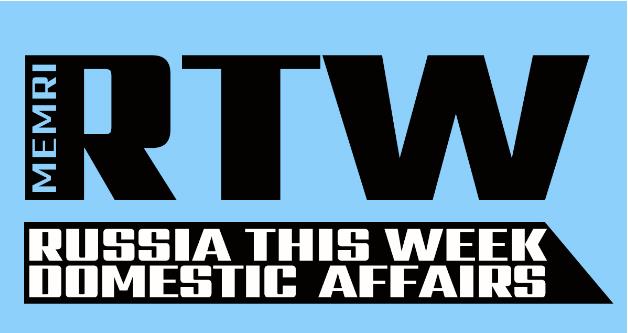
Photo Of The Week
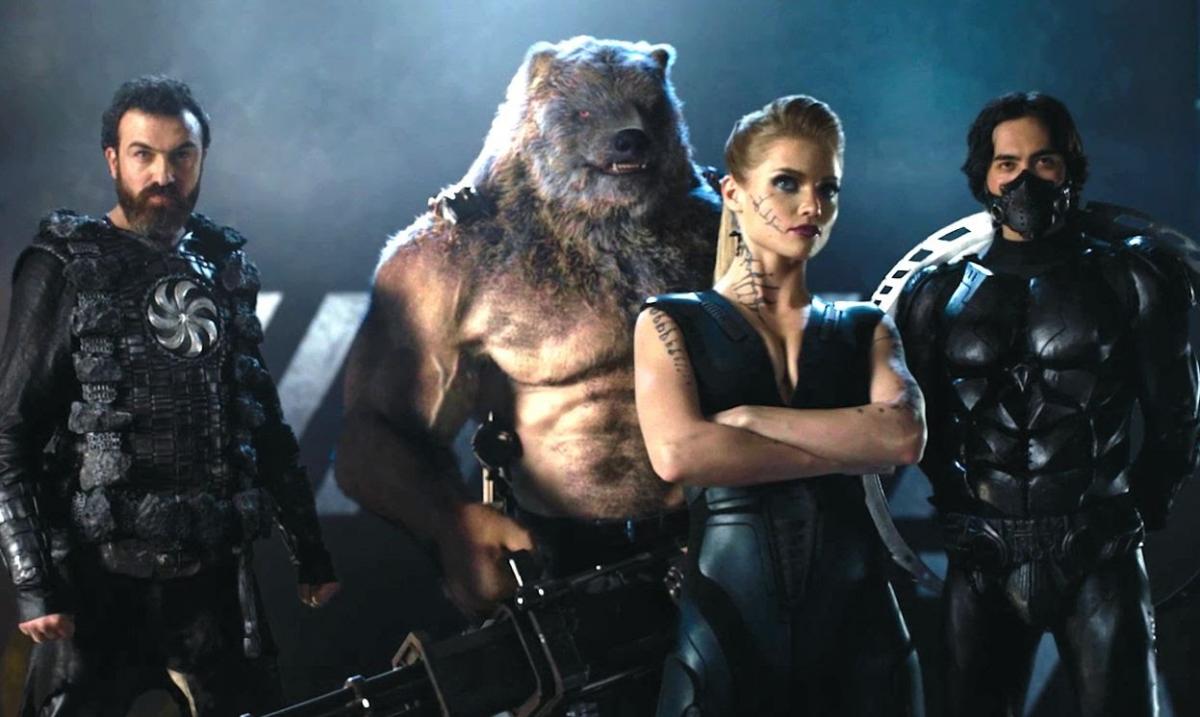
The new Russian movie "Guardians" is a revival of the Soviet superheroes team created during the Cold War. The team comprises four heroes: Arsus, the Russian bear man, Khan, the wind man from Kazakhstan, Ler, the earth man from Armenia, and Kseniya, the water woman from Ukraine. The film's producer claimed that the film exemplified the values of the various nationalities defending each other.
(Nazaccent.ru, February 26, 2017)
In The News:
2018 Presidential Elections
The Kremlin, in an apparently coordinated "leak" to the leading media outlets, is trying to preview or pretest its strategy for the upcoming 2018 presidential elections. If the leak is credible, the Kremlin is weighing optional election scenarios: The newspaper Vedomosti writes that Putin's victory is sealed, and therefore the main question is how to increase the voter turnout in elections that are meant to appear cleaner and more transparent in comparison with previous elections. Putin also has to score higher numbers in relative and absolute terms. The source, who has been quoted in all major Russian newspapers using nearly the same sentences, claimed that the elections were essentially a "referendum of confidence in the president... "There is no doubt whether Putin will be elected. The goal is not to let people feel that if he wins anyway, then there is no point in going to vote," says the source. "Governors have already been put on notice that they can't provide high turnout and support numbers through administrative means. If there are any actions of that kind – all their previous achievements will be null and void (in the eyes of the president)". According to the source, a high support percentage if accompanied by a low turnout is not good enough for the authorities. To increase turnout, the Kremlin is counting on younger voters, who infrequently troop to the polls in large numbers. An article in Moskovsky Komsomolets , quotes the same source in a more colloquial manner, "the authorities won't set up spoilers - artificial ( mock ) candidates who's only role is to draw more attention to the elections... The Kremlin is convinced that Russian society has not yet become disillusioned with the idea of firmly protecting national interests or confronting the West. That said, Putin's political baggage is not enough for 2018. Putin needs not only new ideas – he needs a concrete reform plan that he is prepared to execute during his final presidential term. Only in this fashion, Putin may convince the public that he did not "miss the train" or that he's not a relic of the past, but that like before he has something to offer the country and the world".
(Vedemosti.ru, February 17, 2017; Mk.ru, February 17, 2017)
After the coordinated leak took place, presidential spokesperson Dmitry Peskov denied "the rumors" regarding Putin's new term and said that Putin has yet to issue a statement about participating in the next presidential elections:
"President Putin has repeatedly said that he believes it is too early to make any statements on elections, he has not made any statements so far, there is enough time before the beginning of the election campaign," Peskov said, stressing that "the agenda for today is different."
(Tass.com/politics/, February 21, 2017)
Russia's Economy
According to an article in Vedomosti, the Kremlin administration has begun a monthly monitoring of economic events, which could exert a negative impact on the social-political situation in the regions : The administration has obligated the major companies to monitor events which could produce a negative socio-economic and socio- political environment. The energy, trade, transport ministries and others have passed on the directive to the companies under their supervision. Business sources quoted in the article are convinced that the monitoring is part of elections-related activity: If something positive is happening, it will be timed to coincide with a visit by a political leader, whereas in case of negative scenarios, the Kremlin wants to have the means to calm the potentially dangerous situation. According to Abbas Galyamov, a political science expert : "( The authorities ) understand that an aggravating economic situation does not always produce a growth in protest activity, while solutions provided do not always mitigate the protest moods".
((Vedemosti.ru, February 27, 2017)
According to the newspaper Kommersant, the presidential administration plans to establish informal elections headquarters supported by state corporations and companies. State corporations and state companies are expected to provide sufficient voter turnout figures among their employees. Additionally, some state corporations also own federal media: Gazprom by itself owns three TV channels, 5 radio stations and a publishing house. These outlets will also be at the campaign's disposal.
(Kommersant.ru, March 7, 2017)
Nemtsov Memorial Rally Turns Into Premier Opposition Event
On February 26, 2017, the procession commemorating Boris Nemtsov, who was assassinated two years ago passed through the center of Moscow and became the most powerful protest action of the year. In addition to the traditional slogans the march participants called for a withdrawal of Russian forces from Syria and the release of Ukrainian political prisoners.
Participants of the action brought with them Russian tricolor flags and banners of the Solidarnost movement and the, PARNAS and Party of Progress parties as well as placards with quotations of Nemtsov. Activists led by lawyers Nikolay Polozov and Mark Feygin (who defended Ukrainian activist Nadezhda Savchenko) unfurled a banner "Stop repressions in the Crimea! Freedom to the Ukrainian political prisoners!".
Some of the rally's participants at the meeting carried posters opposing the Russian operation in Syria (as epitomized by the slogan "Syria — the Second Afghanistan"), but the majority of posters was devoted to traditional Russian opposition themes (for example, the slogans — "Russia without Putin" and "Freedom for political prisoners"
Opposition political leaders Mikhail Kasyanov, Gennady Gudkov, Aemilia Slabunova, Sergey Mitrokhin and Grigory Yavlinsky headed a procession. Alexei Navalny, the anti-corruption crusader and putative presidential candidate was also present amongst a column of activists together with supporters of the Party of Progress.
Organizers distributed the Russian tricolor flags and badges with the inscription "Nemtsov Bridge" to everyone.
Ilya Yashin, one of the organizers, said that an objective of the march was to press for a more serious investigation on the case of Nemtsov's assassination.
SUPPORT OUR WORK

One of organizers explained "The police confiscated a "Putin is war" banner from us.
— We will not give in yet, we will not go". In reply, the crowd began to chant: "Putin is war" and "Russia without Putin".
During the action, unknown individuals doused Russia's former prime minister Mikhail Kasyanov, who headed one of columns, with bright green fluid. The attack occurred shortly before the beginning of the march. The police took the provocateur into custody.
In the evening after the procession in memory of Boris Nemtsov, many citizens went to Bolshoy Moskvoretsky Bridge, which received the name Nemtsov Bridge, and laid thousands of fresh flowers at the national memorial On the night of February 27, the staff of the state budgetary institution "Gormost" removed all the flowers and photos of Nemtsov; the opposition volunteers, who called themselves "keepers of the bridge" were detained.
(RBC, February 26, 2017)

Flowers at memorial for Nemtsov (Source: Rt.com)
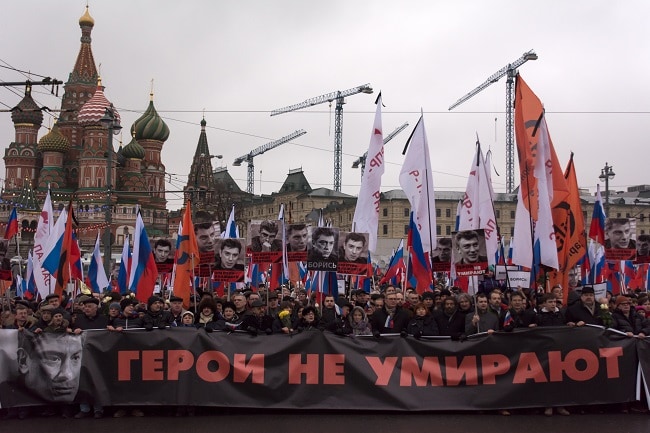
Russian oppositionists march behind portrait of Nemtsov and the slogan "heroes do not die" (Source: Wikimedia Commons)
Russia’s Supreme Court Frees Ildar Dadin
On February 22, Russia’s Supreme Court overturned the conviction of oppositionist Ildar Dadin and, ordered his release from prison. The independent media outlet Meduza.io reported that this decision followed a finding by the country’s Constitutional Court that Dadin's sentence was illegal. Meduza explained Dadin's case: "In December 2015, opposition activist Ildar Dadin was sentenced to three years in prison. He was the first person in Russia to be convicted under Article 212.1 of the Criminal Code for repeatedly violating the rules of organizing street events, in Dadin’s case – protests. In March 2016, the sentence was reduced from three years to two and a half.
"On November 1, 2016, Meduza published a letter in which Dadin spoke about enduring torture at the hands of prison employees at Karelian penal colony number 7. Two days later, Dadin was visited by Russia’s Human Right Commissioner Tatiana Moskalkova, who offered to transfer him to another colony. The European Court of Human Rights accepted Dadin’s case, giving it priority as a case on torture. The European Parliament demanded that Dadin be released. Dadin then wrote another letter in which he said that even after Moskalkova’s intervention and the arrival of members of Russia’s Presidential Human Rights Council, the beating and torture of prisoners at penal colony number 7 did not cease.
"Russia’s Federal Penitentiary Service and the Karelian branch of Russia’s Investigative Committee did not find any evidence of torture in the prison and called Dadin 'a very talented imitator.' Dadin himself behaved inconsistently. In particular, he refused to be viewed by an independent medical examiner and to undergo a lie-detector test. He insisted that his lawyer must be present for all of these procedures. However, on December 5, for reasons of "personal security", the prisoner was transferred to another location. His whereabouts were not known for more than a month. On January 8, his family finally learned that he had been transferred to penal colony number 5 in the Altai.
"On February 10, 2017, Russia’s Constitutional Court ruled that Dadin’s sentence should be reviewed by the country’s Supreme Court. The former decided that Dadin’s sentence for repeatedly holding one-man protests in violation of protest rules should be reconsidered due to the fact that, at the time of Dadin’s criminal proceedings, the law on his violation had not yet come into force.
"On February 22, the Supreme Court overturned Dadin’s verdict. A petition for his release was filed not only by his defense team, but also by Russia’s Prosecutor-General office, which requested that the case be closed and the prisoner released, as Dadin’s actions did not constitute a crime.
"Dadin’s lawyer is certain that the authorities’ attitudes toward Dadin had changed dramatically. Perhaps this was international pressure. Perhaps, it was a diplomatic game, but they came from a [mind-set that had shifted from] 'Dadin should be in prison' to 'Dadin should be released.'

Ildar Dadin (Source: Zekovnet.ru)
Reshuffle In Putin's Governors' Corps
Recently, five regional governors voluntarily submitted resignation letters to the Russian president. The Russian press poses the question whether the seemingly synchronized resignation attests to a general purge of the Russian elites or whether we are dealing with a routine technical rotation timed for the run up to the 2018 presidential elections.
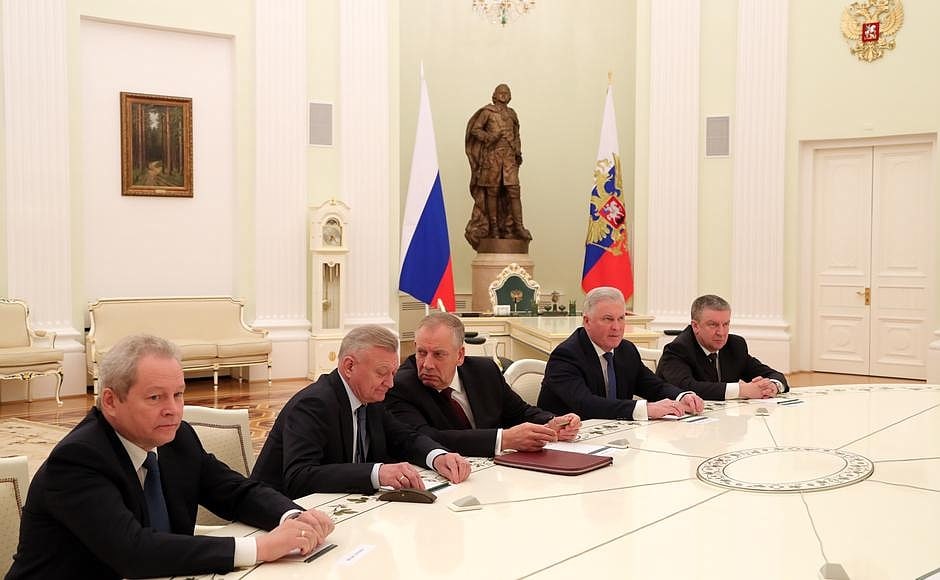
Resigning governors await meeting with Putin (Source: Kremlin.ru)
As early as July 2016, RBC in an article titled "Reshuffle of Elites: What Is Behind the Mass Reshuffle in Power" speculated that "All the reshuffles, were planned at least throughout the entire year, The president of Russia Vladimir Putin initiated the cycle of large scale personnel reshuffles for the 2018 presidential election.
Their purpose is to eliminate conflicts in specific territories and to install in management new middle level people, whom the head of state considers promising for the next electoral cycle. According to one of RBC's informants the next reshuffle stage may no longer affect middle management but top management.
(RBC, July 28, 2016)
Political Expert Alexander Kynev: Clearing The Decks For The Elections
The website Meduza.io is intrigued by the question of why the departing governors chose to leave before the completion of their term and Kynev supplies the rationale: the new leader has an additional time to get things rolling and to conduct an election campaign. Usually it takes two-three months, but presidential elections are coming; evidently, a new chief should have time to solidify his position, and stabilize the local administrative capacity.
Meduza also notes, that no regions with appointed governors will remain after September 2017. But even the regions where the chief was elected, include several quarrelsome regions plagued by administrative conflicts, or criminal proceedings against confidants. In such regions, diverse forms of gubernatorial replacement are being mooted.
Making Way For The Young Technocrats
The new wave of assignments, Meduza notes, reflects a distinct trend and a possible new course, installing a generation of young technocrats in regional office.
The message conveyed is that certain advances are feasible politics at the federal center "we have a non-removable president, but we also have a generation of young and promising managers...It means, not everything is bad, true there is no competition for the post of president, but, look up, new specialists are coming.
(Meduza.io, February 2, 2017)
Meduza splashed cold water on this line of analysis that lavishes the description "young technocrats" on the new appointees.
In Russia technocrats can be considered qualified economists who assume managerial positions in the state machinery and execute determined tasks in particular areas of their activity. At the same time they do not pretend to make the key political decisions. They prepare these decisions, they possess a defined degree of autonomy delegated to them by the political administration, but at the same time they do not participate in making decisions. [CENTROBANK chief] Elvira Nabiullina is a typical Russian technocrat. She supervises the central bank, solves problems in coping with inflation, she has a defined degree of autonomy in influencing the exchange rate for example, - but she does not make the most significant political decisions by herself, but in consultation with head of state.
The governors can call themselves technocrats but they have an entirely different and primarily political set of tasks to produce the outputs required by the political authorities: "The governor keeps a vigilant eye to assure that in his region there will be the correct electoral results, no serious manifestations of political tension, conflicts of an ethnic basis, strikes, mass actions and so on. Their main job is not economic development but politics, and on this they will be judged."
(Meduza.io, February 15, 2017)
RBC believes the reshuffle is a test drive of a new system of selecting governors based on research and surveys designed to produce popular and competent governors. In 2012 Russia went back to the Soviet model under which the regional legislature selected the governor with presidential approval, when it was really the presidential approval that counted. Now we are back to elections but controlled ones, which the Kremlin has lost only once (in Irkutsk to the Communists in 2015). In the controlled election of pre-vetted "ideal" candidates, centralized control remains but now it is presumably exerted on a more scientific basis. RBC believes that the system remains flawed as it "is capable of somewhat guaranteeing control but cannot guarantee development." It also deprives Russian citizens of a true vote and taking responsibility for their selection.
(RBC, February 20, 2017)
Much Ado About Nothing
Paradoxically, both opposition and official voices downplayed the importance of the reshuffle. In the Radio Freedom program "The Edge of Time", Professor Yuliy Nisevich, a former leader of Democratic Russia, scoffed at the theories that the reshuffle was connected to the elections or to economic efficiency. "The question of to what degree a region supported or did not support United Russia [the ruling party] is valueless because we know the results." The reshuffle represented Brownian motion and the need to make a show of activity.
(Svoboda.org, February 6, 2017)
Kremlin spokespersons rejected the attempts to identify subterranean processes in the governor reshuffle. According to press-secretary Dmitry Peskov: "All the governors who so far made declarations about it, noted that they are going to officially retire on their own initiative. All of them are not heading their regions for the first year or first 5 year term regions, all of them were and are in constant contact with president, and the president repeatedly met with them and repeatedly spoke positively about the results of their work. Therefore I would consider inappropriate any basis for searching here for 'subterranean' processes."
(Gazeta.ru, February 14, 2017)
Vladimir Putin himself sought to dedramatize the issue by referring to the rotation as an "entirely natural process", Putin voiced hope that the former heads of regions "would do everything in order to help and support the work of their successors".
(Izvestia.ru, February 17, 2017)
Strange But True:
A group of parents, seeking to enroll their children for first grade at a prestigious school in the northwest city of Petrozavodsk, hired private security guards to prevent competitors from getting ahead of them in line. The mother of a girl who was unable to sign up at school number 48 petitioned the city court to have all the placements be annulled.
According to the court documents, security company personnel at first allowed only those parents who had virtually lined up on social networks to enter the school’s premises, and ignored the actual line of parents who had come in person to the open house.
In Petrozavodsk, only seven schools gave parents the option of signing their children up for the 2017-2018 school year online. The rest of the institutions accepted applications for admission from a "live line" outside the school premises.
(Meduza.io/en/news, March 1, 2017)
The Liberal Democratic Party of Russia ( LDPR ) introduced draft legislation proposing the reestablishment of Russian imperial state symbols such as the black-yellow-white imperial flag and national anthem "God, save the Tsar". As the party explained in the note accompanying the proposed legislation, the re-establishment of the imperial symbols would facilitate the rebirth of Russian spiritual and cultural values, since these symbols express the nation's historical memory and its great victories and achievements that would unite the generations.
(Ria.ru/politics, March 2, 2017)

Russian imperial flag (Source: Aliexpress.com)




